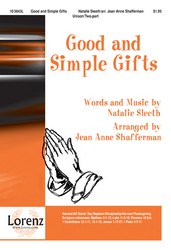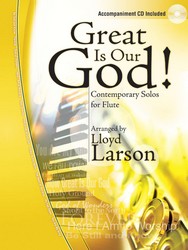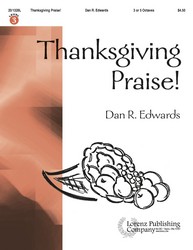- |
User Links
Nun bringen wir den Leib zur Ruh, Und decken ihn mit Erde zu (Liebich)
Nun bringen wir den Leib zur Ruh, Und decken ihn mit Erde zu (Liebich)
Author: Ehrenfried LiebichPublished in 83 hymnals
Representative Text
1 Nun bringen wir den Leib zur Ruh
und dekken ihn mit Erde zu,
den Leib, der nach des Schöpfers Schluß
zu Staub und Erde werden muß.
2 Er bleibt nicht immer Asch und Staub,
nicht immer der Verwesung Raub;
er wird, wenn Christus einst erscheint,
mit seiner Seele neu vereint.
3 Es währen Reichtum, Ehr und Glück,
wie wir selbst, einen Augenblick;
so währt auch Kreuz und Traurigkeit,
wie unser Leben, kurze Zeit.
4 Hier, wo wir bei den Gräbern stehn,
soll jeder zu dem Vater flehn:
Ich bitt o Gott, durch Christi Blut,
mach's einst mit meinem Ende gut.
5 Wann unser Lauf vollendet ist,
so sei uns nah, Herr Jesu Christ;
mach unser Sterben zum Gewinn,
zieh unsre Seelen zu dir hin.
6 Und wenn du einst, du Lebensfürst,
die Gräber mächtig öffnen wirst,
dann laß uns fröhlich auferstehn
und dort dein Antlitz ewig sehn.
Source: Antwort Finden in alten und neuen Liedern, in Worten zum Nachdenken und Beten: evangelisches Gesangbuch (Bayern, Mitteldeutschland, Thüringen) #669
Author: Ehrenfried Liebich
Liebich, Ehrenfried, was born July 15, 1713, at Probsthain, near Goldberg, Silesia, where his father was a miller. He assisted his father in the mill up to his sixteenth year, and was thereafter allowed to study at the Latin school at Schweidnitz, and the St. Elisabeth school at Breslau. At Easter, 1738, he entered the University of Leipzig as a student of Theology, and on concluding his course in 1740, was for some time engaged in private tuition. In April, 1742, he became pastor at Lomnitz and Erdmannsdorf, near Hirschberg, Silesia, and remained there till his death on June 23, 1780 (Koch, vi. 391; Allgemeine Deutsche Biographie, xviii. 584, &c). Liebich is one of the best German hymn-writers of the middle of the 18th century; Scriptura… Go to person page >Text Information
| First Line: | Nun bringen wir den Leib zur Ruh, Und decken ihn mit Erde zu (Liebich) |
| Author: | Ehrenfried Liebich |
| Language: | German |
| Publication Date: | 1871 |
| Copyright: | Public Domain |
English
German
- A Collection of Hymns: designed for the use of the Church of Christ #L125
- Allgemeine Lieder-Sammlung: zum Gebrauch für den privaten und öffentlichen Gottesdienst. (6th Aufl.) #281
- Antwort Finden in alten und neuen Liedern, in Worten zum Nachdenken und Beten: evangelisches Gesangbuch (Bayern, Mitteldeutschland, Thüringen) #669
- Ausgewaehlte Psalmen und Lieder fuer kirchlichen und haeuslichen Gebrauch #d251
- Church and Sunday School Hymnal with Supplement: a Collection of Hymns and Sacred Songs ... [with Deutscher Anhang] #G15
- Church Hymnal, Mennonite: a collection of hymns and sacred songs suitable for use in public worship, worship in the home, and all general occasions (1st ed. ) [with Deutscher Anhang] #A15
- Das Christliche Gesang-Buch #d199
- Das Geistliche Saitenspiel: oder, Eine Sammlung auserlesener, erbaulicher, geistreicher Lieder zum Gebrauch aller Gottliebenden Seelen, insonderheit für dei Gemeinen der Evangelischen... (1st Aufl.) #465
- Das Gemeinschaftliche Gesangbuch: zum gottesdienstlichen Gebrauch der Lutherischen und Reformirten Gemeinden in Nord-America. (1st.. Aufl) #370
- Das neu eingerichtete Gesang-buch: bestehend aus einer Sammlung der besten Lieder, zum gebrauch des öffentlichen Deutschen Gottesdienstes', und andern Uebungen zur Gottseligkeit... (2nd aufl.) #144 10 shown out of 76
Tune
OLD HUNDREDTHThis tune is likely the work of the composer named here, but has also been attributed to others as shown in the instances list below. According to the Handbook to the Baptist Hymnal (1992), Old 100th first appeared in the Genevan Psalter, and "the first half of the tune contains phrases which may ha…
REST (Bradbury)
HAMBURG
Lowell Mason (PHH 96) composed HAMBURG (named after the German city) in 1824. The tune was published in the 1825 edition of Mason's Handel and Haydn Society Collection of Church Music. Mason indicated that the tune was based on a chant in the first Gregorian tone. HAMBURG is a very simple tune with…


 My Starred Hymns
My Starred Hymns





